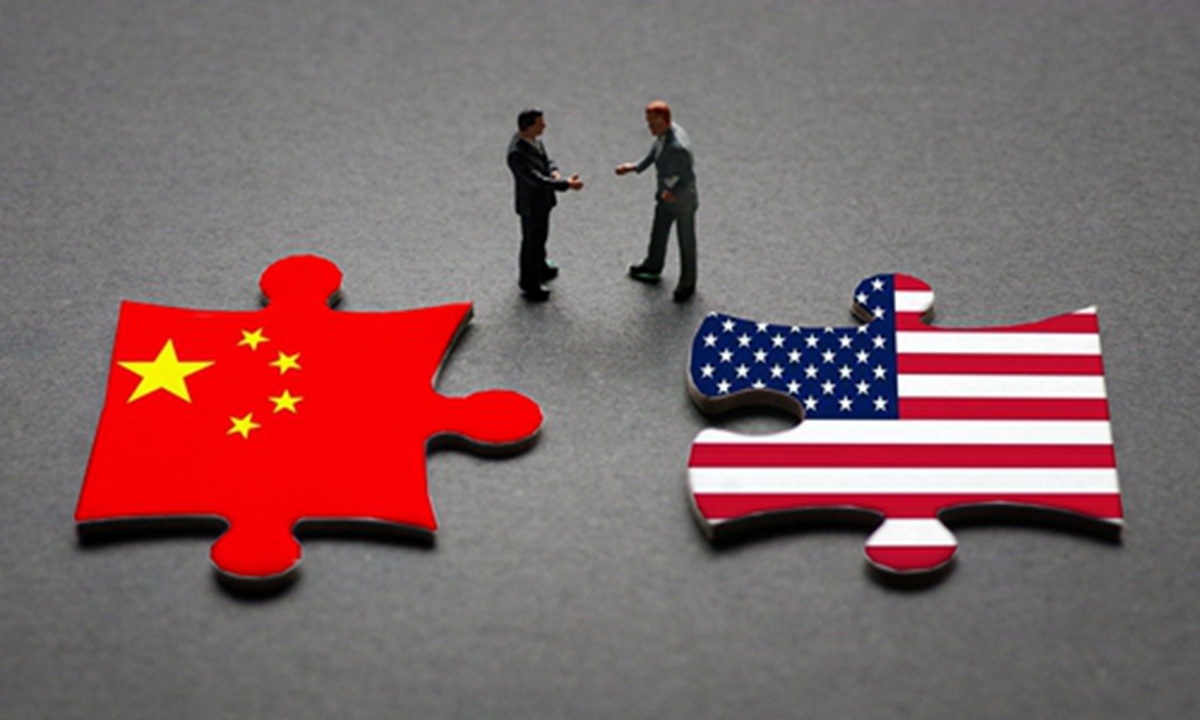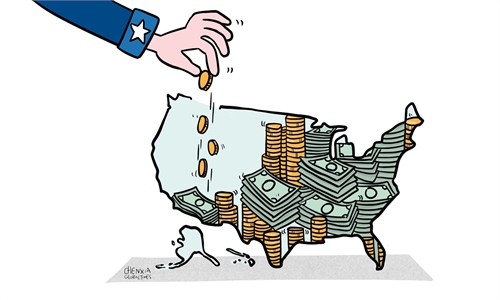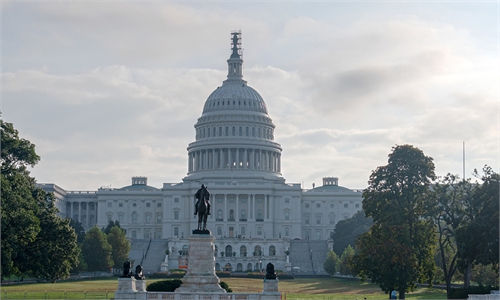
Photo: IC
It is not uncommon to see US politicians propose a self-reliant industry policy as a solution to the supply chain crunch, but it is such kind of misguided approach built on protectionism and economic politicization that has actually allowed a short-term supply chain bottleneck to ferment into a real crisis.In order to avert a supply chain crisis that is threatening to disrupt America's most important holiday season, US President Joe Biden on Wednesday announced that the Port of Los Angeles, and the Port of Long Beach, two of the countries' busiest ports, as well as big retailers like Walmart and Target, will rev up operations to 24 hours a day, seven days a week.
In a speech detailing the supply chain efforts, Biden emphasized that Americans need to be able to make critical products in the US homeland, and should not "rely too heavily on one company or one country or one person in the world, particularly when the countries don't share our values."
This is not the first time the Biden administration has revealed an ambition to politicize supply chains, but his efforts underpinned by the wrong strategy will prove to be in vain.
The supply chain crisis the US is experiencing is unprecedented and worth reflecting on. The IMF on Tuesday lowered its 2021 growth forecast for the US by one full percentage point to 6 percent amid severe supply-chain disruptions.
In late September, Federal Reserve Chairman Jerome Powell said, "I've never seen these kinds of supply-chain issues, never seen an economy that combines drastic labor shortages with lots of unemployed people and a lot of slack in the labor market."
There is no doubt that the Biden administration needs to focus on fixing its supply chain mess, but it must be done using the right approach, not with wrong-headed policies based on ideological bias.
While it is understandable that the supply scarcity may have contributed to political calls for self-reliance and protectionism, the deterioration of US supply-chain woes over the past few months is a vivid demonstration highlighting the disruptions wrong policies could bring to the market.
A few months ago, economists generally thought that the bottlenecks across US supply chains, shipping and the labor market could all be explained by "temporary" factors caused by the pandemic, but the reality now appears to be that supply chain bottlenecks have deteriorated instead of easing.
Why? Instead of being really pragmatic toward solving its supply-chain issues, US politicians have been busy advocating bringing back manufacturing back to the US homeland solely out of geopolitical considerations.
Political orientation that go against the law of market dynamics affects the decision-making of producers, traders and logistical companies, adding difficulties for those market players to make the right judgment.
What happened surrounding the global chip shortage is a clear case study of the market disruption caused by US politicized economic and trade practices. It is because the US government, intentionally, cut Chinese companies off its chip supplies that forced chip-makers to reduce production, then resulting in a global chip shortage several months later.
The world economy and manufacturing are closely intertwined. The US eagerness to boost self-reliance reflects its anxiety about the hollowing-out of its industrial chain, and the lack of capacity to rebuild its manufacturing supply chain. Going against the global economic patterns to pursue decoupling and confrontation may only hurt itself in the end.



